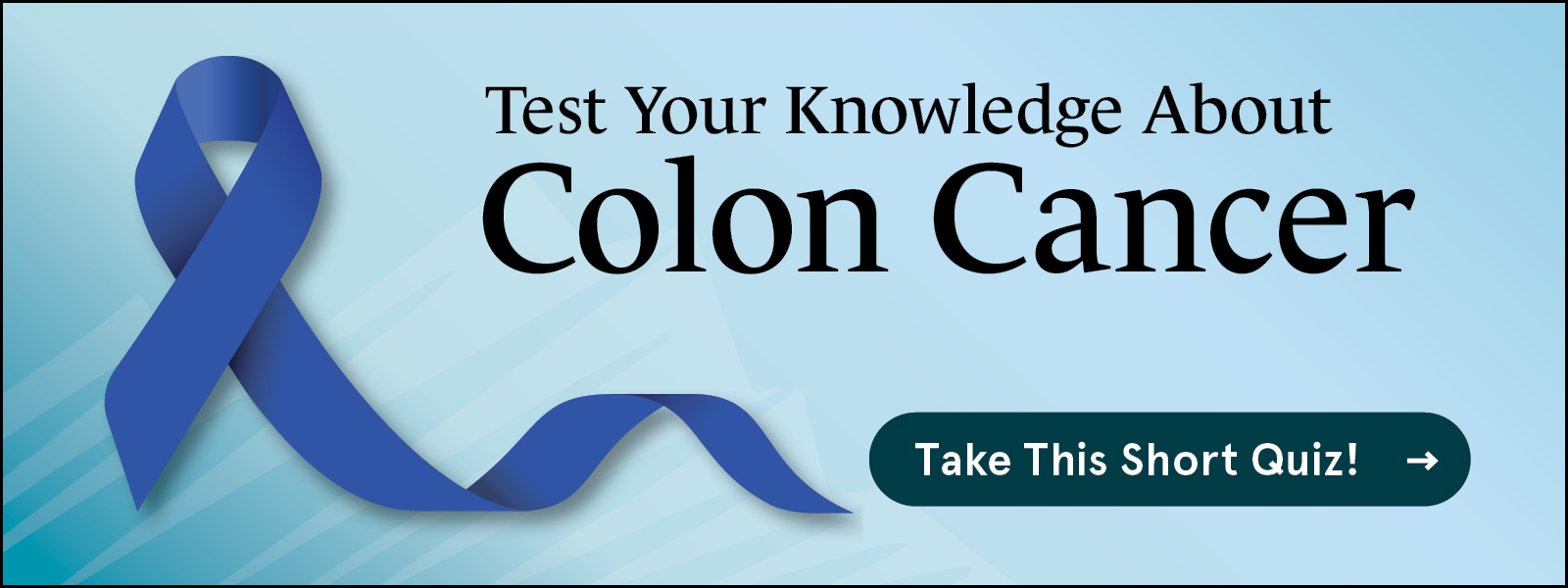What are Colorectal Cancer Risk Factors and Who Is at Risk?
5 min read

Life is full of unknowns… especially when it comes to whether you will develop cancer. While there’s no guarantee either way, it’s a good idea to be mindful of the risk factors that could increase the chances of it happening. For colon and rectal cancers, there are some risk factors related to lifestyle choices that can be controlled, while other factors are out of your control.
It may come as a surprise that only a small percentage (about 5%) of colorectal cancers are hereditary or caused by inherited genetic mutations. However, this means that the rest of the cases could be associated with other risk factors. Read more in our blog: Is Colon Cancer Hereditary?
The more you understand what you can do to lower your risk of developing colorectal cancer, the more proactive you can be in your day-to-day choices.
Whether you’re at average risk or at an elevated risk of developing colorectal cancer you should also be aware of when to start screening.
Related reading: When Should You Start Colon Cancer Screenings?
What to Understand About Colorectal Cancer
Colorectal cancer develops when cells in the colon or rectum grow out of control. Oftentimes, it begins as polyps, or small, noncancerous clumps of cells that form inside the colon. Eventually, some of these polyps can become cancerous in both the colon and the rectum.
Learn more about polyps in our blog: What are Colon Polyps and Are They Cancerous?
Because they are very small, most cancerous polyps grow unnoticed unless they’re detected with a screening test. This means that the signs and symptoms usually aren’t experienced until the cancer has progressed to a point where it’s harder to treat.
Risk Factors for Colorectal Cancer
Although anyone can be affected by colorectal cancer, people with certain risk factors are more likely than others to develop the disease.
Lifestyle-related colorectal cancer risk factors
With colorectal cancer on the rise in people under the age of 50 in recent years, it’s evident that lifestyle choices play a major role in who develops the disease. These factors, which can be controlled, include:
- Being overweight
- Lack of exercise
- Eating an unhealthy diet, especially one that is high in processed foods (i.e., fast food, chips, highly preserved snacks)
- Alcohol consumption
- Tobacco use
- Consuming too much red meat
- Vitamin D deficiency
Read more in our blog: How Your Diet Can Impact Your Risk of Developing Colon Cancer
If you have more than one risk factor in the list above, it’s a good idea to consider making some changes. Changing your habits all at once can be overwhelming, so it’s okay to take steps toward a healthier lifestyle that you can handle. Any positive changes you can make can help lower your risk status for colorectal cancer, as well as your risk of developing other types of cancer, heart disease, and type 2 diabetes.
Colorectal risk factors you cannot control
While you can’t change these things, it’s still important to know if you have any of the following risk factors for colorectal cancer:
- Age: People over the age of 50 are most commonly affected by colon and rectal cancers. However, it is increasing among people under 50.
- Race and ethnicity: The highest rate of colon and rectal cancers in the United States are among African Americans. Ashkenazi Jews (Jews of Eastern European descent) are also considered to be a high-risk group.
- Personal or family history: If you or a family member have had colorectal polyps or colorectal cancer, the chance of you developing colorectal cancer increases.
- Personal history of other diseases: Conditions such as inflammatory bowel disease, ulcerative colitis, or type 2 diabetes put you at an increased risk for colorectal cancer.
- Inherited genetic syndromes: Lynch syndrome (HNPCC) and familial adenomatous polyposis (FAP) are also linked to an increased risk of colorectal cancer.
Ways to Help Reduce the Risk of Developing Colorectal Cancer
The American Cancer Society states that there are certain steps you can take in order to maintain a healthy weight, lifestyle, and diet — all of which can reduce cancer risk:
- Incorporate exercise into your daily routine, aiming for 2 to 5 hours of moderate-level exercise or 1 to 2 hours of intense physical activity per week.
- Focus on moving your body each day, taking regular breaks from prolonged sitting and screen time.
- Add fiber and nutrient-rich fruits, vegetables, and whole grains into your diet.
- Reduce how often you consume processed meats and foods, sugar-sweetened drinks, and refined grains.
Related Reading: Increase in Cancer Rates in People Under 50: What You Need to Know
Get Screened for Colorectal Cancer
People with no risk factors from the list above can develop colorectal cancer. That’s why getting screened is important — in fact, it has saved many lives! The goal of screening is early detection of colorectal cancer or even pre-cancerous polyps that can be removed before they turn into cancer.
While colonoscopies are the standard when it comes to screening for colorectal cancer, individuals who are considered average-risk may be able to utilize some at-home testing kits, especially before the age of 50. Be sure to check out our blog about What to Know About At-Home Colon Cancer Tests.
When Should I Start Colorectal Cancer Screening?
The American Cancer Society (ACS) recommends regular colorectal cancer screenings at age 45 for average-risk individuals. If you have a family history or a lifestyle that produces personal risk factors, you should consider speaking with your doctor by age 30 about a screening schedule that’s right for you.
Remember, colorectal cancer screening can save your life or the life of a loved one. Rather than skip your screenings, the colorectal cancer specialists at Rocky Mountain Cancer Centers encourage you to schedule them as recommended by your primary care physician.
Other than screening, there is nothing available to detect colorectal cancer at an early stage since it doesn’t show symptoms until it’s become more advanced. When symptoms do occur, they often include changes in bowel habits, abdominal cramping or pain, and rectal bleeding. While something other than cancer could be causing these symptoms, it’s best to schedule an appointment with your doctor rather than ignore them.
Expert Colorectal Cancer Care Throughout Colorado
At RMCC, we offer the latest in colorectal cancer treatments and are here to provide you with an individualized treatment plan. If a screening results in you being newly diagnosed with colorectal cancer, contact us to schedule an appointment with one of our specialists at a location that’s most convenient for you.
